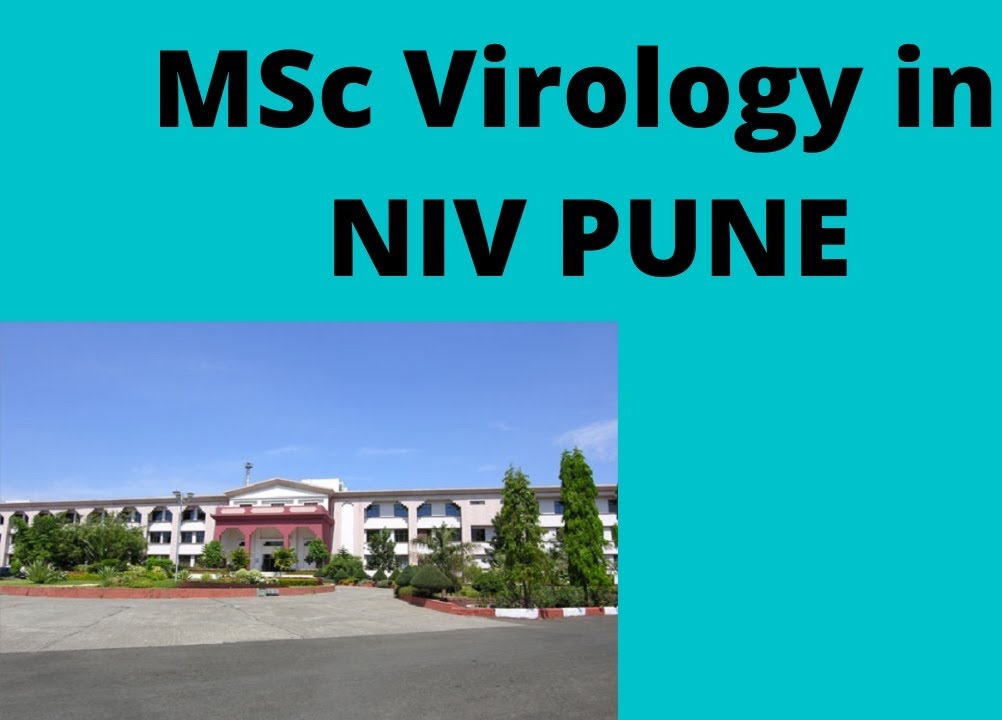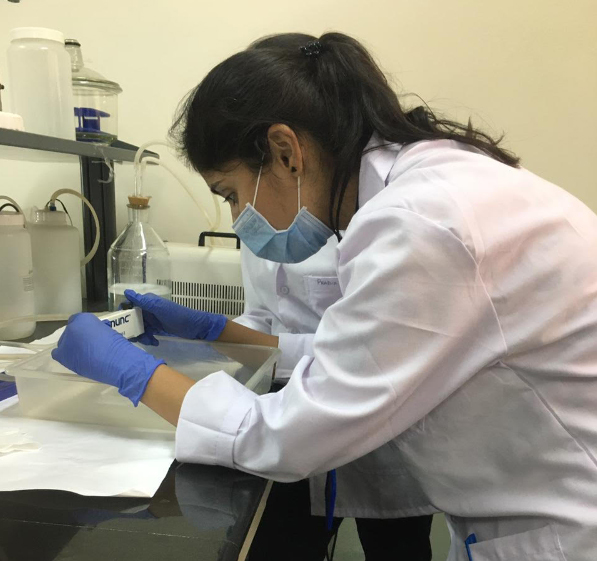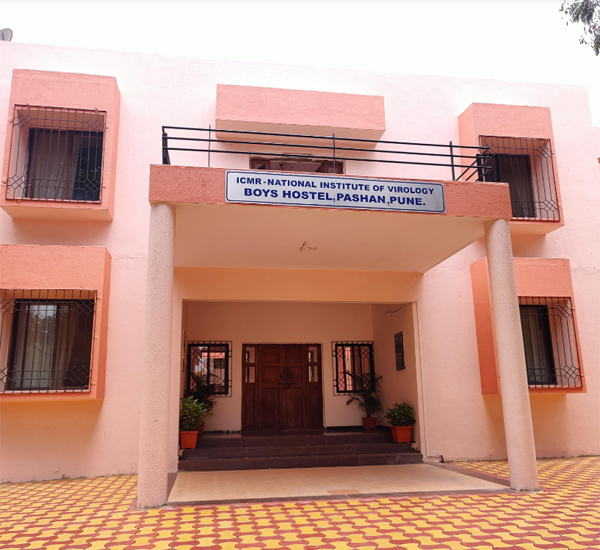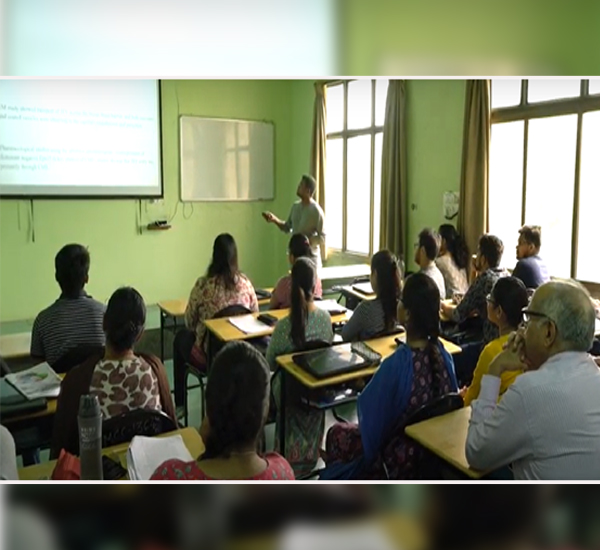| List of M.Sc., Virology courses offered at ICMR-NIV from academic year 2020-21 | |||
|---|---|---|---|
| Sr.No | Course Name | Title | Credit |
| Semester I | |||
| 1. | VR-111(T)* | Basic Virology # | 1 |
| 2. | VR-112(T)* | Tissue Culture | 1 |
| 3. | VR-113(T) | Cell Biology | 1 |
| 4. | VR-114(T)* | Immunology-I | 2 |
| 5. | VR-115(T)* | Basic Epidemiology & Biostatistics # | 2 |
| 6. | VR-116(T)* | Vector Biology # | 1 |
| 7. | VR-117(T)* | Virological Methods | 2 |
| 8. | VR-118(T) | Analytical Techniques | 2 |
| 9. | VR-119(T) | General Biochemistry | 1 |
| 10. | VR-120(T) | General Microbiology (Optional) | 1 |
| 11. | VR-131(P) | Analytical Methods | 2 |
| 12. | VR-132(P) | Tissue Culture Techniques | 2 |
| 13. | VR-133(P)* | Virus/Antigen Detection | 2 |
| 14. | VR-134(P)* | Statistical Methods | 1 |
| 15. | VR-136(P)* | Entomological Methods | 1 |
| 16. | VR-136(P)* | Propagation of Viruses | 1 |
| Total Credits for Semester I | 22 | ||
| Semester II | |||
| 17. | VR-211(T) | Recombinant DNA technology | 2 |
| 18. | VR-212(T)* | Virus Cell Interaction # | 1 |
| 19. | VR-213(T)* | Virus Replication # | 1 |
| 20. | VR-214(T)* | Immunology-II | 1 |
| 21. | VR-215(T)* | Biosafety and Biosecurity # | 1 |
| 22. | VR-216(T)* | Applied Epidemiology | 1 |
| 23. | VR-217(T) | Bioinformatics | 1 |
| 24. | VR-218(T)* | Antivirals # | 1 |
| 25. | VR-219(T) | Molecular Biology | 2 |
| 26. | VR-220(T) | Viral Vaccines # | 1 |
| 27. | VR-221(T) | Mathematical Biology (Optional) | 1 |
| 28. | VR-231(P) | Molecular Techniques | 2 |
| 29. | VR-232(P) | Biochemical/Biophysical Methods | 2 |
| 30. | VR-233(P)* | Serological Methods | 2 |
| 31. | VR-234(P)* | Immunological Techniques | 2 |
| 32. | VR-235(P)* | Biosafety and Biosecurity | 1 |
| 33. | VR-236(P)* | Epidemiological Data Management and Analysis/td> | 1 |
| 34. | VR-237(P) | Practical Bioinformatics | 2 |
| Total Credits for Semester II | 25 | ||
| Semester III | |||
| 35. | VR-311(T)* | Viral Enteric Diseases and Cancers | 1 |
| 36. | VR-312(T)* | Viral Hepatitis | 1 |
| 37. | VR-313(T)* | Viral Respiratory Diseases | 1 |
| 38. | VR-314(T)* | Exanthematous Diseases of viral Aetiology | 1 |
| 39. | VR-315(T)* | Viral Haemorrhagic Fevers | 1 |
| 40. | VR-316(T)* | Viral Encephalitis | 1 |
| 41. | VR-317(T)* | HIV / AIDS (Conducted at ICMR-NARI) | 1 |
| 42. | VR-318(T) | Veterinary and Agricultural Viruses # | 1 |
| 43. | VR-319(T) | Special Topics | 1 |
| 44. | VR-331(P)* | Viral Enteric Diseases | 2 |
| 45. | VR-332(P)* | Viral Hepatitis | 2 |
| 46. | VR-333(P)* | Viral Respiratory Diseases | 2 |
| 47. | VR-334(P)* | Viral Exanthematous Diseases | 1 |
| 48. | VR-335(P)* | Viral Hemorrhagic Fevers (Special reference to Dengue) | 2 |
| 49. | VR-336(P)* | Viral Encephalitis | 2 |
| 50. | VR-337(P)* | HIV / AIDS (Conducted at NARI) | 2 |
| Total Credits for Semester III | 22 | ||
| Semester IV | |||
| 51. | VR-431(P) | Research Project and Presentations | 14 |
| Total credits for Semester IV | 14 | ||
| Total credits | 83 | ||
(T) = Theory and (P) = Practical, One credit= 15 hours of interaction of students with facilitator and / or 60 hours for practical work in the laboratory.
# Courses which can be opted for by students from outside departments.
[Among the minimum number of credits to be earned by a student to complete a Postgraduate Degree program the student will have to earn minimum 75% credits from the parent Department (subject) and the remaining up to 25% credits could be earned from the parent Department (subject) or any subject/s of any faculty conducted at other PG Department/ PG Center. In any case, a student will have to earn compulsory credits from the parent Department (subject) over and above. A student may opt for courses equivalent to 25% credits from any other department than the one where he/she is registered. In case a student wishes to take all courses from the parent department he/she can also do so.]




